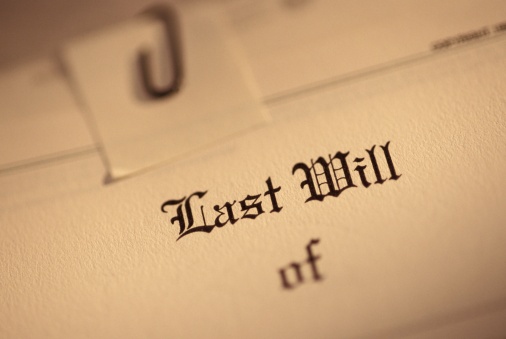Without A Will, Legislature’s Guesses Hold Sway

Most people should say that when it comes to dying without a will, there’s no way.
But far too many folks manage do find a way, and this can have potentially devastating consequences, according to the American Bar Association.
“If you die intestate, without a will, your state’s laws of descent and distribution will determine who receives your property by default,” according to the association. These laws vary from state to state, but typically the distribution would be to your spouse and children, or if none, to other family members. A state’s plan often reflects the legislature’s guess as to how most people would dispose of their estates and builds in protections for certain beneficiaries, particularly minor children.
“That plan may or may not reflect your actual wishes, and some of the built-in protections may not be necessary in a harmonious family setting. A will allows you to alter the state’s default plan to suit your personal preferences. It also permits you to exercise control over a myriad of personal decisions that broad and general state default provisions cannot address.”
A will, whether a simple one or a document of significant complexity, reflects the will of the person who signs his or her name to it, and can provide a lasting last memory for family and friends left behind.
Sometimes, however, the ABA warns, a will alone might not be enough to ensure a descendant’s wishes are fully and properly carried out.
“In many instances, consumers prepare wills believing that the will governs who will inherit their assets when in fact, the title (ownership) of various accounts or real property, for example, as joint tenants, or beneficiary designations for IRAs, life insurance and certain other assets control the distribution of most or even all assets,” the article states. “This is why merely addressing your will is rarely sufficient to accomplish your goals.”
